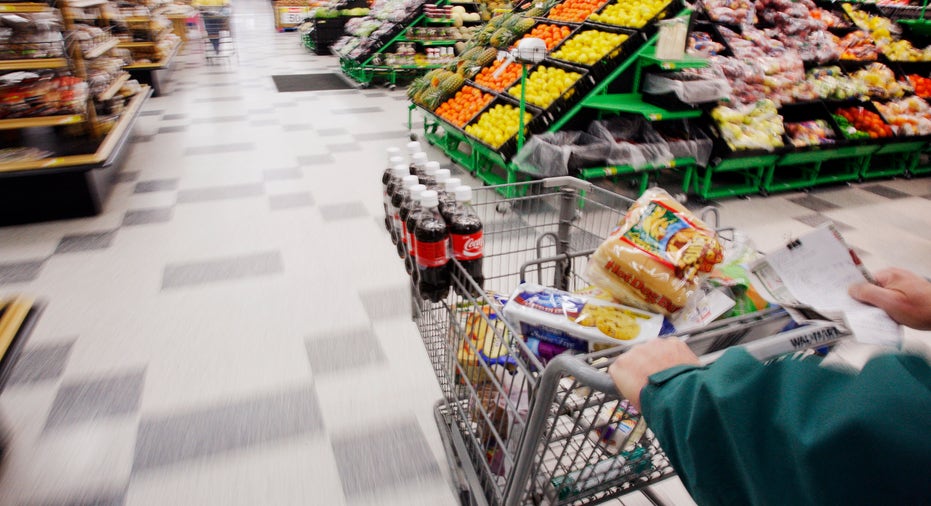Don’t Buy That! How to Stop Impulse Buying

We’ve all done it: walked into a store with a short shopping list and left with arms full of bags spilling over.
Whether it’s the items retailers strategically place at the check-out counter or a buy-one-get-one deal that was too good to pass up, very few shoppers have the level of impulse control required to purchase only the items we need.
According to the 2012 Shopper Engagement Study by Popai, a trade association for the marketing at retail industry, the in-store decision rate for shoppers climbed to 76%, up from 70% in 1995. Not surprisingly, more than half of all people surveyed-- 57%-- often spend more than planned.
Grocery stores are one of the main places people overspend, with appealing food and beverage aisles that lure in even the most budget-conscious shoppers. "People will definitely be impulsive when they get to a food aisle that speaks to them, and they will end up buying more," says Susan Shapiro Barash, author of You're Grounded Forever, But First Let's Go Shopping. "The rationale is that it 'looks good.' Food is another form of beauty; this is what culture and advertising has taught us. You may go in for the staples like milk and eggs, but then you're also going to purchase something that's pleasing to you, that satisfies an urge." She adds that items presented in attractive packaging that tells a story are perceived as having a higher value.
The weak economic recovery has left many shoppers struggling to make ends meet and forced to cut back their discretionary spending at clothing and high-end luxury retailers. However, these reductions are to grocery stores’ advantage. According to Shapiro Barash, people think: “If I can't get that designer bag, then I'm going to get that designer cheese. There's something subconscious about it, but it's a language that we know. We satisfy ourselves through shopping. If you can't afford to buy a new dress, then you're going to reward yourself at the grocery store or buy some gourmet cookies at the bakery next to that boutique you really want to shop in."
Simple steps like shopping alone and on a full stomach can ward off in-store spending decisions, but to really make a shift in buying methodology, consumers need a new mindset.
"In the diet world, they always say you need impulse control and behavior modification if you're trying to lose weight, but in personal finance, if you're spending too much money, they say education is what's lacking. But it's not that people don't know they need to spend less, they just need to modify their habits," says Karen Carlson, director of Education for InCharge Debt Solutions. "Impulse control is just as important when it comes to money"
Carlson says that many people have "lost faith" in older financial wisdoms like "buy a house," or "invest in the stock market" because of the volatility of the economy, and this has resulted in fewer Americans "staying the course" for long-term savings.
The world seems more impulsive now, which drives people to be impulsive with their own spending and saving habits, she says. "You can get pleasure from being financially responsible, but it's a different kind of pleasure than the one you get when you're impulse buying. People are naturally pleasure-seeking, and with all the economic pressure right now, they're looking for those good feelings wherever they can get them."
Here are five expert tips for sticking to a list and getting out of the grocery store without going broke:
Plan your meals. "If you know exactly what you're going to prepare and serve at each meal, there won't be room for unnecessary add-ons," says Carlson. "Have your meals written out so you'll know what you need and how much you need."
Take your list with you, and mark off each item as you put it in your cart. A lot of us may make a list, but few of us remember to take it with us and check off each item as we go. "Having that in front of you can make all the difference," says Carlson.
Do an inventory before you go shopping. Many of the items we purchase at grocery stores are items we think we might need, according to Carlson. "If you know what you have before you go there's no danger of buying duplicates."
Check past bills. Look at grocery bills from the last two weeks and analyze your spending, recommends Shapiro Barash. "Unless you can look and see and say, 'Woah, the last two weekends I bought double what I expected,' then you're going to continue repeating the pattern.
Only use cash. "Use cash when you're shopping and don't take more than you need to cover what's on your list," says Carlson. "Don't even bring a debit card or credit card with you so you won't be tempted."



















